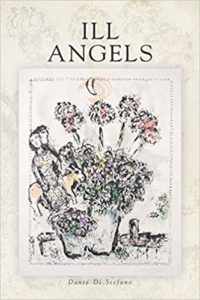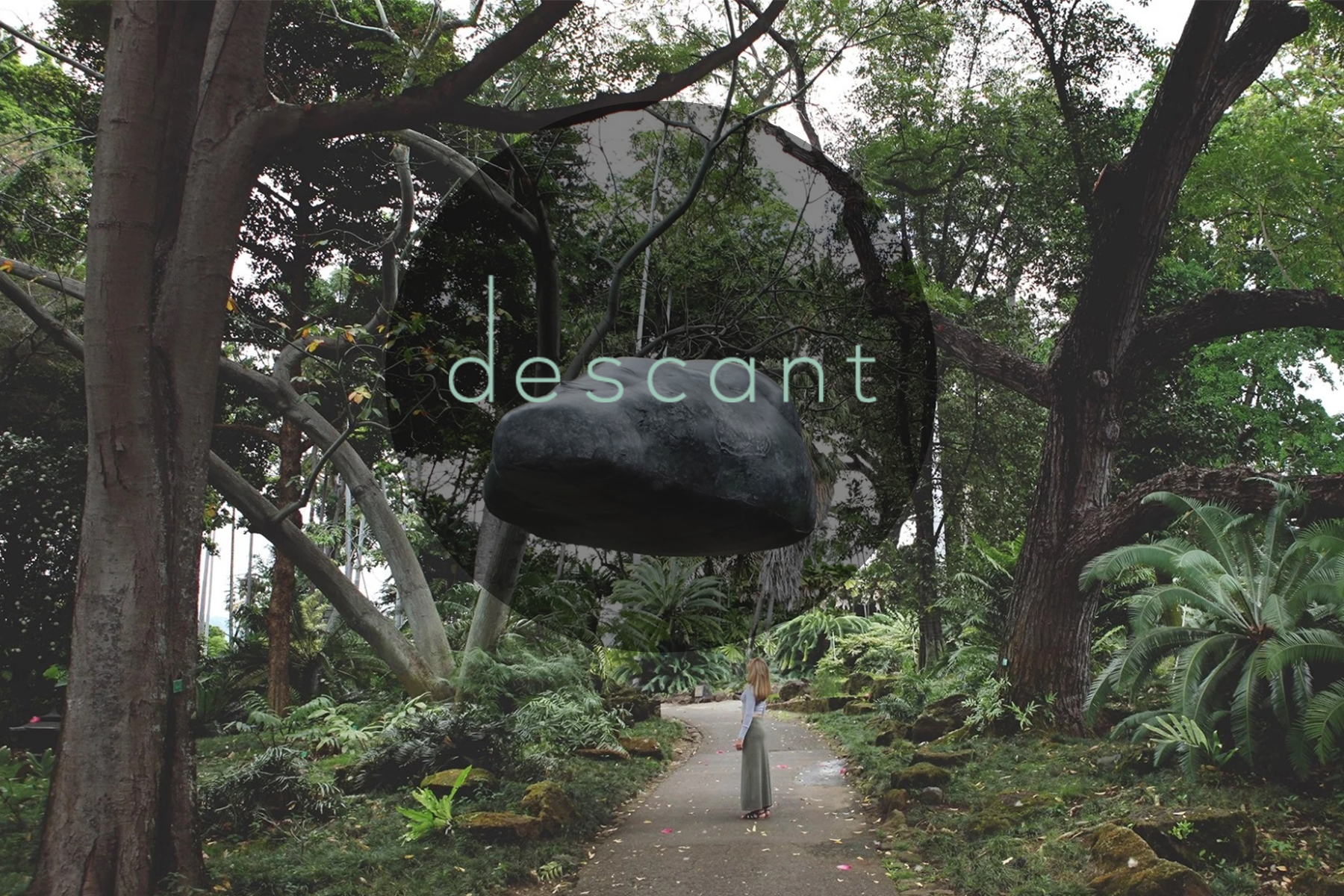Review by Brian Fanelli
 Since 2016, it’s been impossible to turn away from screaming headlines and global unrest. Ill Angels, Dante Di Stefano’s second full-length collection of poems, is a post-2016 book, but one that never mentions Donald Trump by name. There is a poem titled “The 45th” and poems written shortly before and after the election, but Di Stefano was wise to keep Trump’s name from the pages. By doing so, he ensured that the poems do not become dated long after this period in history is over. Furthermore, while some of the poems may be a reaction to the current tumultuous historical moment, the collection’s broader themes, especially its praise of American poets and musicians, and its fundamental belief in love, will resonate long after this chapter in our history concludes.
Since 2016, it’s been impossible to turn away from screaming headlines and global unrest. Ill Angels, Dante Di Stefano’s second full-length collection of poems, is a post-2016 book, but one that never mentions Donald Trump by name. There is a poem titled “The 45th” and poems written shortly before and after the election, but Di Stefano was wise to keep Trump’s name from the pages. By doing so, he ensured that the poems do not become dated long after this period in history is over. Furthermore, while some of the poems may be a reaction to the current tumultuous historical moment, the collection’s broader themes, especially its praise of American poets and musicians, and its fundamental belief in love, will resonate long after this chapter in our history concludes.
At its core, Ill Angels offers a premise that the best anecdote to our current upheaval is faith in art, love, and family. Several of the poems are praise songs to American musicians, everyone from Coltrane to Bob Dylan, American poets, including Langston Hughes and Gwendolyn Brooks, and the poet’s family, including his wife and, at the time, his unborn daughter. These elements merge throughout the collection to create an America of art, love, diversity, and song that is a contrast to political divisions and tumult. As a high school English teacher, Di Stefano also places hope in his students, as illustrated in “National Poetry Month, 2017.” The speaker admits in the second and third stanzas, “We teachers are supposed to say / keep climbing, rocket higher, clamber up, / knock loose the shade of your misconceptions, / but some days it’s hard not to dwell in / the knuckles’ ache of whatever bad news / unfolds and flits and flits from screen to screen,” but in the concluding stanzas, the speaker envisions a better world that he’d like to build with his students.
Some days, children, I want to build with you
a world less rickety, spinning slower,
jagged and pinkish at the horizon,
ricocheted with uncompromised shining,
an orchard inside a seed the wind clips out
into the heart of the heart of a field,
which is the endless golden field inside
your own wild, shrewd, dubious, strange, greening
teenage hearts and lungs exhaling amen,
and blessing me now in my middle age.
As gorgeously unseen as the new moon,
we’ll sing from the apple’s interior;
together, children, we’ll choir these bones.
Other poems share a similar type of optimism and faith in younger generations. In the short narrative poem, “My Goddaughter Chews Happiness,” the speaker recounts watching his Goddaughter chew a corner of the book Happiness by Thich Nhat Hahn. This memory is distilled into a moment of beauty and hope, as the speaker says that his Goddaughter is “happiness, her face a petal of good / birdsong and sunlight,” before concluding, “Dear Mae, I hope that you / forever hold happiness in this way, / effortlessly on the tip of your tongue.” Like “National Poetry Month, 2017,” Di Stefano constructs an imagery of nature/new life when talking about children and younger generations, comparing the teenage hearts of high school students to a type of green and comparing Mae to a birdsong and sunlight. This is a contrast to the rampant consumerism that Di Stefano depicts in some of the other poems.
For instance, in “Preamble,” which is dated Nov. 9, 2018, the day after the 2016 election, the speaker presents a broad overview of America, including its many flaws.
We transubstantiate Starbuck’s dark roast.
We praise tailgate, waterboard, and pigskin.
We verdict ourselves with our silences.
Soon we extreme vet. We build border walls.
We speak in the language of cash receipts.
Our mothers keep busy voting tyrant;
they apple organic and threaten
a riot of unity and flowers.
We conceal carry. We temporary
permit below the bright November stars.
We open container on clear evenings.
We unborn and overregulated.
We late term abort our own liberties.
The poem, written in the style and rhythm of Brooks’ “We Real Cool,” especially the enjambment, presents a general overview of America, and like Brooks’ poem, which ends with the line, “We / die soon,” Di Stefano’s “Preamble” contains the type of pessimism that reflects the date the poem was written. However, the book’s three concluding poems all reference important figures in American literature and music, including Langston Hughes, Coltrane, and David Ignatow, and all are poems addressed to the speaker’s unborn daughter, expressing love to her and sharing with her some of the best aspects of American culture and history. In “Reading Langston Hughes to Our Unborn Child,” Di Stefano adopts some of the imagery of one of Hughes’ most famous poems, “The Negro Speakers of Rivers,” and in doing so, he again praises family, writing in the opening lines,
There is a Tigris in you, little one,
and an infinite Euphrates running
through your mother. We are rowing now
in ancient dark, in big boats, toward
each other. The thought of you already
baptizes me again. I am upheld
in you. You are floating in an ocean
of cells you will soon constellate for us.
Ill Angels is a collection that finds inspiration in domestic, everyday moments, including a wife listening to Nina Simone or walking the family dog and appreciating an animal’s ability to enjoy an hour outside. Di Stefano’s poems are a love letter to American culture and history, including jazz, hip-hop, and poetry. The poet reminds us that this rich history, coupled with faith and love in each other, will uplift us during these divisive times.
 Brian Fanelli’s most recent book is Waiting for the Dead to Speak (NYQ Books), winner of the Devil’s Kitchen Poetry Prize. His poetry has been featured on “The Writer’s Almanac” and Verse Daily, and his writing has been published in the Los Angeles Times, World Literature Today, Paterson Literary Review, Main Street Rag, and elsewhere. Brian has an M.F.A. from Wilkes University and a Ph.D. from SUNY Binghamton University. Currently, he teaches at Lackawanna College. www.brianfanelli.com.
Brian Fanelli’s most recent book is Waiting for the Dead to Speak (NYQ Books), winner of the Devil’s Kitchen Poetry Prize. His poetry has been featured on “The Writer’s Almanac” and Verse Daily, and his writing has been published in the Los Angeles Times, World Literature Today, Paterson Literary Review, Main Street Rag, and elsewhere. Brian has an M.F.A. from Wilkes University and a Ph.D. from SUNY Binghamton University. Currently, he teaches at Lackawanna College. www.brianfanelli.com.
